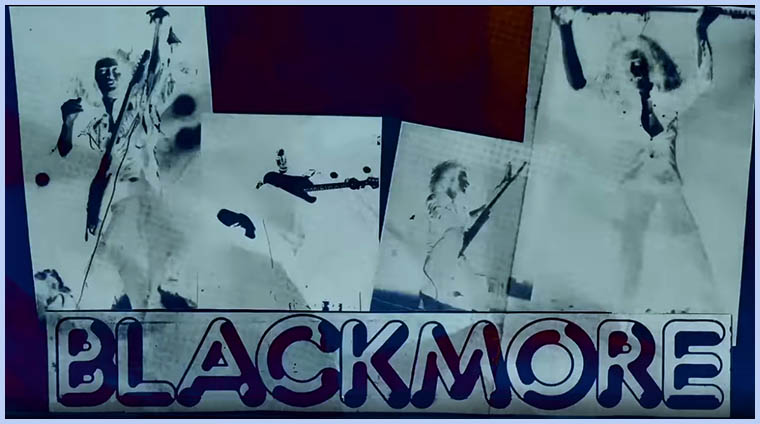|
Ritchie Blackmore November 1975 Interview Ritchie Blackmore interviewed by Ronnie James Dio  There is obviously more to it than a desire to deafen the audience. Could you talk about the way in which volume has increasingly become so important a factor for you and for a lot of other bands? No, I do not think that Deep Purple became known to the public through sheer volume. That was just an easy target for the press to criticize who did not like the band. I did notice that we were considered to be the loudest band in existence according to the Guinness Book of Records. But then again, that depends on how big the hall is where you are playing at the time. We played no louder than most of the other so-called big groups. In fact, some groups are most definitely louder than Deep Purple. It depends also on the PA and who is operating it at the time, apart from the fact I'm hard of hearing anyway. Don't forget there are only four or five musicians most of the time in a group, whereas compared to an orchestra, there's 90 to 2,000 in an orchestra. Our records are no louder than any other records of that, of an orchestra for instance. Number two, would you describe your style as aggressive and what precisely are you trying to express through your own distinctive style? I would not describe my playing as aggressive, maybe more as destructive. No, maybe dramatic is my style. I love dramatic music. For instance, Bach, Hendrix, Holst, Wally Roundhead, etc and so on. I'm just expressing my feelings at the time of playing like any other musician. As far as having my own distinctive sound, that comes from not being very good at copying other guitarists. My style developed through sheer practice. When I was attending school, I was constantly practicing mentally. Then I would rush home and practice to the late hours and would practice about five hours a day. I was obsessed with playing. Then I joined various groups around the Hounslow area where I was living at the time. Who were your main influences? My first influence, believe it or not, was Tommy Steele. I saw Tommy Steele jumping about with a guitar around his neck and I thought "that's what I wanted to do". So, I picked up the guitar and started prancing about like he did. And then I found out more about guitarists and started to emulate certain guitarists. I think the first one was Hank B Marvin of The Shadows. I used to play 'Apachy' which he recorded as a single with The Shadows. And then I heard about this guitarist that was living in the Hounslow area where I lived at the time and his name was Jimmy Sullivan. And when I saw Jim, I thought it's either a case of giving up or trying to compete. As you well know Jim, I was always trying to steal your guitar solos, either from you personally or listening to your program on the radio with Marty Wild and the Wildcats, which was must have been 15 years ago. And I think one of the greatest solo guitar instrumentals I've ever heard was 'Peak Hour', of which you played the lead, which I still haven't got off yet because I've lost the record. My idols apart from you were Les Paul, Django Reinhardt, Wes Montgomery, Cliff Gallup who used to play with Gene Vincent, Scotty Moore who played with Elvis Presley. But at the moment, I don't have so many idols that play guitar. I prefer listening to violinists, cellists such as Tortelier, Jacqueline Du Pre, Pinchas Zuckerman, etc. For the last two years, I'm tending towards classical, although I don't play classical guitar in the accepted orthodox manner. I also listen a lot to medieval music and have been playing cello for the last year, trying to anyway. I consider myself more or less a rock guitarist. Playing rock is most definitely a challenge because of the limitations involved such as the chord structures and timings, and of course the excitement and the feeling of power on the stage, plus the money. You moved away from session work to be part of a named band. Is the role of a session guitarist frustrating and if so, why is it? I did not do an awful lot of session work because of the reading of music which was involved at the time. I did more of the rock sessions for Joe Meek, who wrote Telstar and various other things I can't remember off hand. It was funny sometimes to hear yourself perhaps on eight out of ten records being played on the radio knowing that it was you playing the guitar. Session work was very good for cleaning up my technique and becoming familiar with studios, but it was sometimes very boring. So, I left because it was beginning to cramp my style. Probably the same reason that you and Jimmy Page left. In my opinion, two of the best solos ever recorded were played by you, the solo on 'Together' by PJ Proby and 'The Crying Game' by Dave Berry. That to me was the beginning of the English electric guitar. © Ritchie Blackmore Official You Tube Channel |
